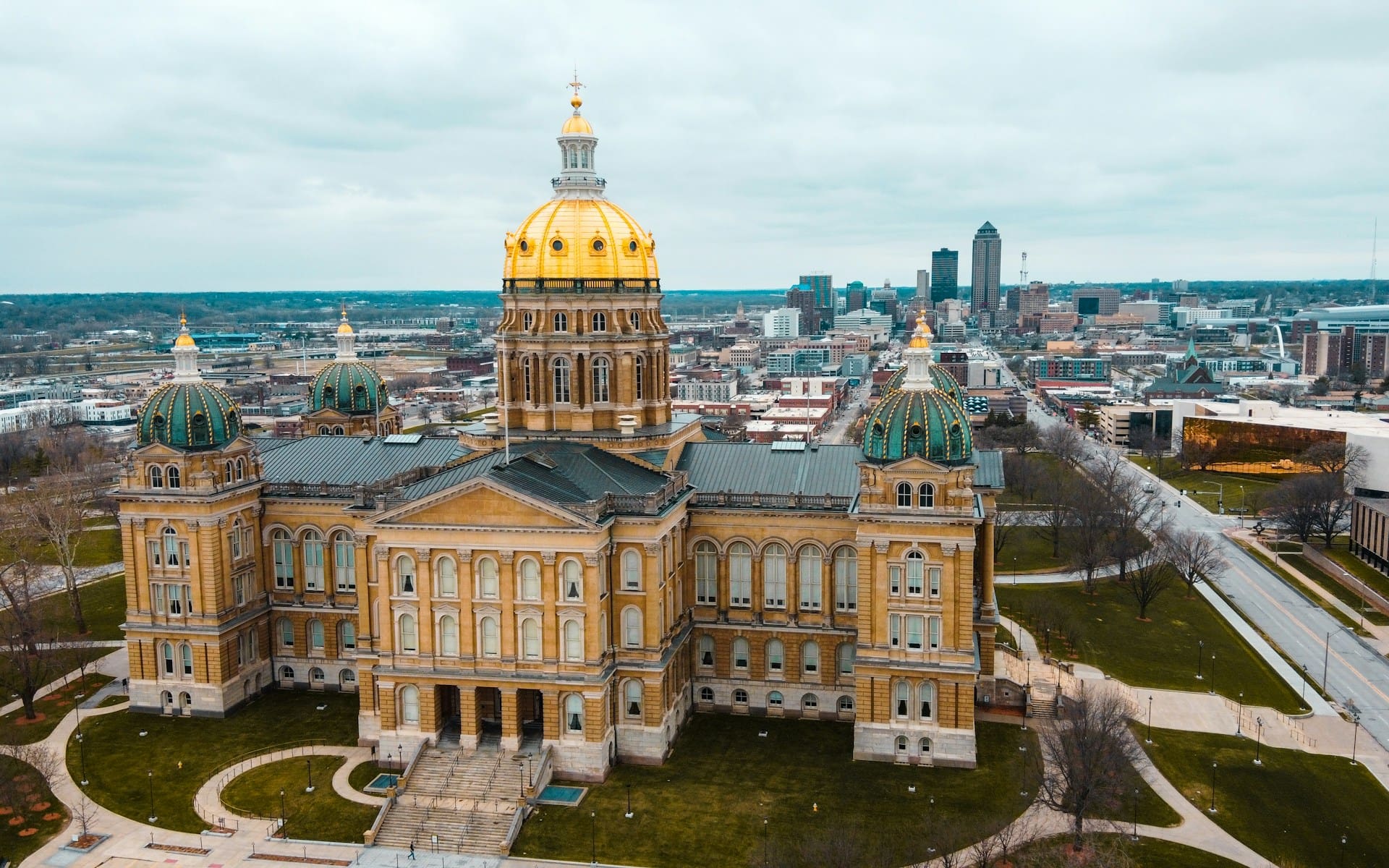By Ty Rushing
See original post here.
Sen. Bill Dotzler, 75, called the last two legislative sessions the “worst attack” on low-income and working-class Iowans he has ever seen.
The Democrat from Waterloo—who has served in the legislature for over three decades—made those remarks Tuesday as the Iowa Senate spent a portion of the 100th day of the legislative session debating a previously shelved bill to ban basic income programs in Iowa.
The bill—HF 2319—passed in a 35-13 party-line vote with Republicans in favor and Democrats opposed.
“I just don’t get it. I’ve been through a lot of sessions and I haven’t quite seen one like this,” Dotzler said during the debate. “These last two years have been the worst attack on working-class people and low-income people that I have seen.”
HF 2319, which passed in the Iowa House earlier in the session, prohibits city or county governments from participating in guaranteed income programs, unless they are supported by state law. It will become law if Gov. Kim Reynolds signs it.
This bill was created in response to the establishment of UpLift — The Central Iowa Basic Income Program, which receives no state funds. UpLift is a poverty-reduction research pilot program to see how receiving an additional $500 with no restrictions will affect 110 recipients’ lives.
The program covers residents in Dallas, Polk, and Warren counties. It is funded via a public-private partnership and supporters include Bank of America, Polk County, Principal, Wells Fargo, and the cities of Des Moines, Windsor Heights, and Urbandale.
“We could actually be working on something that’s going to solve some problems and help close this place down and you chose to attack an organization that’s going to help people,” Dotzler said.
“It’s not coming out of the Iowa Senate’s pocket; it’s not coming out of the general fund. What are we doing here? Let’s close this place down or at least work on something that’s going to move our state forward.”
Sen. Tony Bisignano (D-Des Moines) questioned why legislators are more than fine with farm subsidies, but want to ban programs to help people of lower means. He then pulled out a list and began to read the names of Iowa lawmakers who received farm subsidies or have relatives who have received them.
“I’m just going to do some last names to show you what a stipend is—what socialism is—what subsidy is all about,” Bisignano said. “Might as well as start with the Grassleys—I don’t know which one—but it’s $1.3 million in subsidies from ’95 to 2021.”
As he started to name more names, Bisignano was forced to stop after his remarks were deemed not germane to the debate after a point of order was raised by Sen. Brad Zaun (R-Urbandale).
During his remarks, Zaun called programs such as UpLift a form of socialism and questioned the wisdom of the Urbandale city government for participating in the program, something he said shocked him. Zaun was previously mayor of the Polk County community.
“We’re taking taxpayer money—property taxpayer money—and we’re redistributing wealth,” Zaun said.
He also said what previously made America a great country was people relying on their neighbors, churches, and nonprofits to help people in need and not the government. In addition to local governments, UpLift partnered with more than a dozen nonprofits, including the Des Moines Area Religious Council.
Sen. Mike Bousselot (R-Ankeny) also argued that programs such as UpLift and other government social benefits keep people from working hard to elevate their financial status.
“The entitlements that we have created have created a disincentive for Iowans to take that overtime, to take that next job,” he said. “That is not a poverty cliff, that is a poverty trap.”
According to project organizers, 68% of UpLift participants work full- or part-time jobs, while the others are unpaid caregivers, disabled, or looking for work. Only 2% of participants identified themselves as unemployed or not looking for work.
Most of the UpLift funds are being spent on basic needs such as groceries, transportation, housing, and utilities. One participant even used the extra money to move her family to a safer neighborhood.
“The truth is money helps,” said Sen. Sarah Trone Garriott (D-West Des Moines). “And the truth is when the people have more money, they can make better choices. They have more opportunities, greater security, they have better mental health, and physical health.
“They have better relationships and they are better able to be an active part of our economy, and that’s what these basic income pilot programs show.”
















